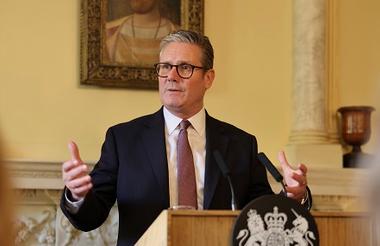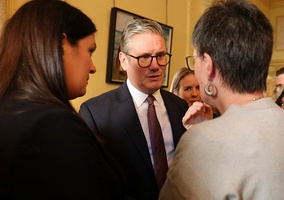Charities have called for the upcoming Civil Society Covenant to address a “significant breakdown in trust” between the sector and government.
A report summarising responses from more than 1,000 voluntary organisations details barriers to collaboration between charities and the state, including a “lack of respect and understanding” of how the sector operates.
NCVO and ACEVO’s report identifies a “power imbalance” between charities and the government or public bodies and makes several recommendations for the covenant, which is due to be published this summer.
The report calls for laws that restrict charities’ ability to campaign, such as the Lobbying Act 2014, to be amended and for the government to commit to flexible funding arrangements.
It recommends that ministerial and senior civil service leads for civil society be appointed in every government department, with oversight of the covenant established through the Culture, Media and Sport Committee.
The report calls for a Treasury unit focused on civil society to be established, as well as advisory groups and a partnership hub.
It also calls for annual reviews of the covenant to be introduced alongside real-time issue reporting to ensure ongoing accountability.
And the report calls for civil society understanding to be embedded in government training and for investment in building relationships between the sectors.
‘Mutual respect’ needed
NCVO and ACEVO have been leading the covenant’s development since last year alongside the Department for Culture, Media and Sport (DCMS).
In their responses, civil society organisations broadly welcomed the covenant’s proposed key principles of recognition, partnership, participation and transparency.
Sarah Elliott, departing chief executive of NCVO, said: “This report reflects the voices of voluntary sector organisations from across the country, setting out clearly what charities want the covenant to include for it to be successful.
“We know that meaningful partnership with government can only be achieved through trust, transparency, mutual respect and shared purpose.
“By delivering a covenant that enables genuine partnership with civil society, government can make real progress on its wider missions – from health inequality to community resilience.
“We’re committed to working with government to deliver not only for the sector but the people and communities charities support.”
Jane Ide, chief executive of ACEVO, said: “We know that leaders across civil society are eager to ensure that well-expressed intentions from government are followed and reinforced by tangible actions.
“There’s an opportunity to establish a new framework for a relationship between civil society and government at all levels, and work together on a mission-driven approach to transforming the lives of the people and communities we’re all here to serve.
“But to be meaningful and credible with our sector at a time of continuing economic challenge and social polarisation, the covenant must be rooted in genuine and intentional commitment.
“We’ll continue to carry those messages to government on behalf of the sector we’re here to serve and look forward to seeing this work come to fruition.”
DCMS: Civil society a ‘trusted and independent’ partner
In response to the report, a DCMS spokesperson said: “This government is committed to resetting the relationship with civil society in order to realise its potential as a trusted and independent partner.
“The aim is to build a new partnership with the creation of a Civil Society Covenant where civil society is fully valued and integral to delivery of the government’s Plan for Change.”
Meanwhile, media outlets including the Telegraph and the Times have recently reported that the government is considering closing DCMS, which holds the civil society brief, as part of a civil service efficiency drive.
Commenting on the rumours, Gradel Institute of Charity executive director Stephen Bubb said: “Whatever the future of DCMS, I believe sector relationships should be handled at the heart of government, not as an afterthought.
“If the government is serious about a new concordat with charities, then put the third sector unit back into the cabinet office.”
DCMS declined to comment on the reports regarding its future.
Also commenting on the covenant report, NPC head of policy James Somerville said: “The findings add to a clear picture of what's needed – openness, a shared understanding, and a 'test and learn' approach.
“It's particularly good to see some of our recent recommendations echoed here, including a civil society link to the Partnerships Unit at Number 10 to make sure there's a clear 'front door'.
“The impact sector has enormous potential to work alongside government to drive social change. The covenant will be an important step to making this happen.”












